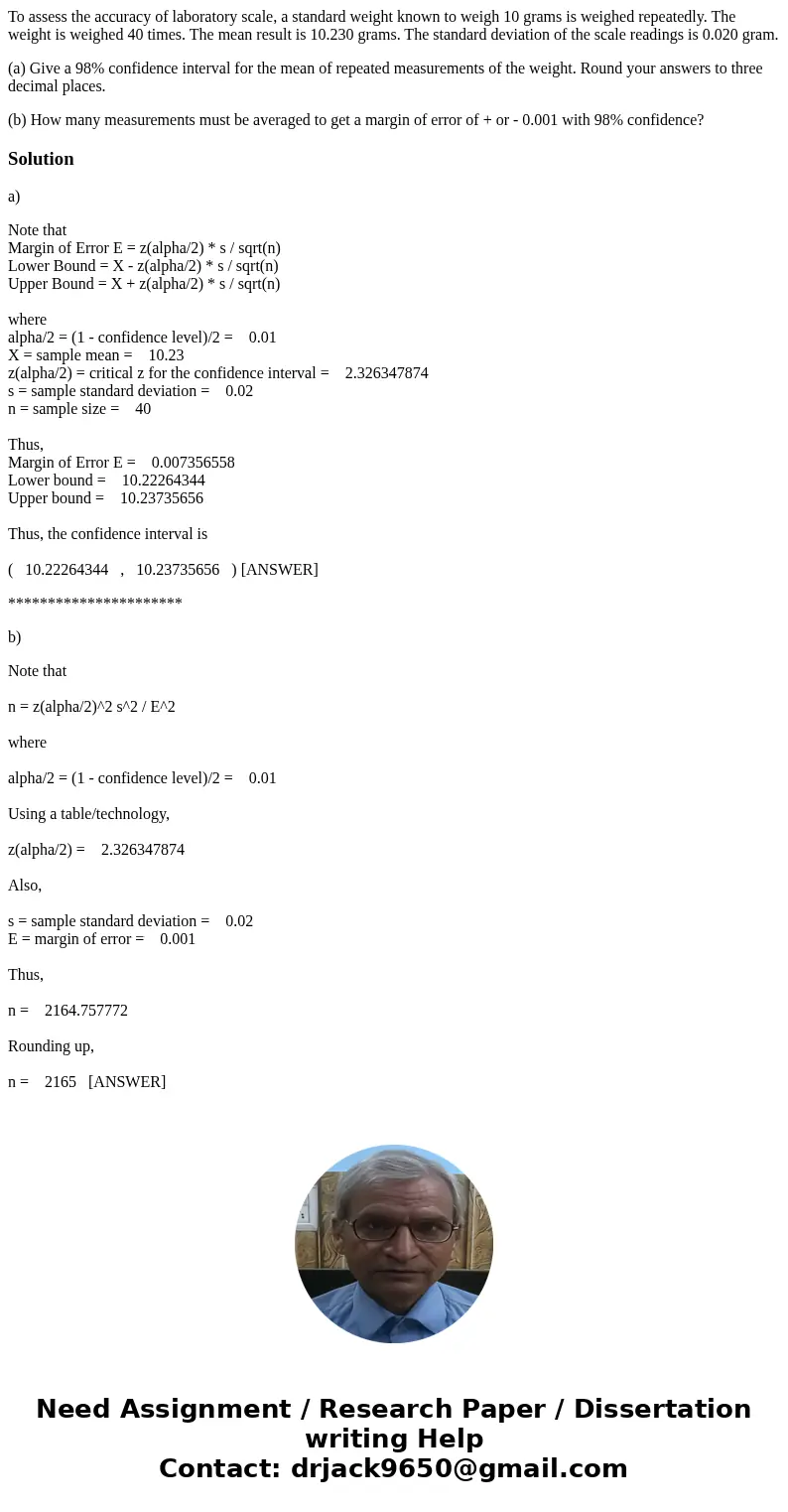To assess the accuracy of laboratory scale a standard weight
To assess the accuracy of laboratory scale, a standard weight known to weigh 10 grams is weighed repeatedly. The weight is weighed 40 times. The mean result is 10.230 grams. The standard deviation of the scale readings is 0.020 gram.
(a) Give a 98% confidence interval for the mean of repeated measurements of the weight. Round your answers to three decimal places.
(b) How many measurements must be averaged to get a margin of error of + or - 0.001 with 98% confidence?
Solution
a)
Note that
Margin of Error E = z(alpha/2) * s / sqrt(n)
Lower Bound = X - z(alpha/2) * s / sqrt(n)
Upper Bound = X + z(alpha/2) * s / sqrt(n)
where
alpha/2 = (1 - confidence level)/2 = 0.01
X = sample mean = 10.23
z(alpha/2) = critical z for the confidence interval = 2.326347874
s = sample standard deviation = 0.02
n = sample size = 40
Thus,
Margin of Error E = 0.007356558
Lower bound = 10.22264344
Upper bound = 10.23735656
Thus, the confidence interval is
( 10.22264344 , 10.23735656 ) [ANSWER]
**********************
b)
Note that
n = z(alpha/2)^2 s^2 / E^2
where
alpha/2 = (1 - confidence level)/2 = 0.01
Using a table/technology,
z(alpha/2) = 2.326347874
Also,
s = sample standard deviation = 0.02
E = margin of error = 0.001
Thus,
n = 2164.757772
Rounding up,
n = 2165 [ANSWER]

 Homework Sourse
Homework Sourse